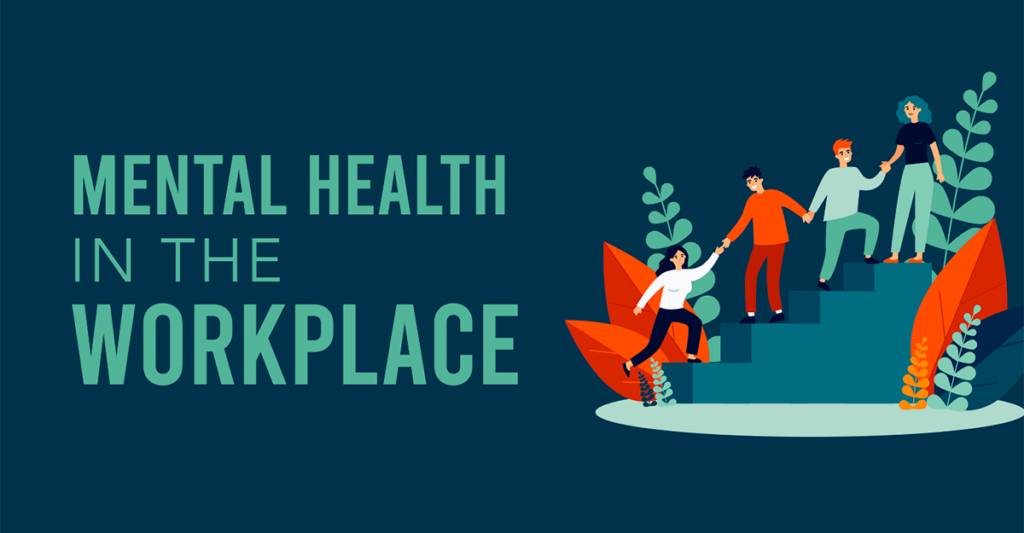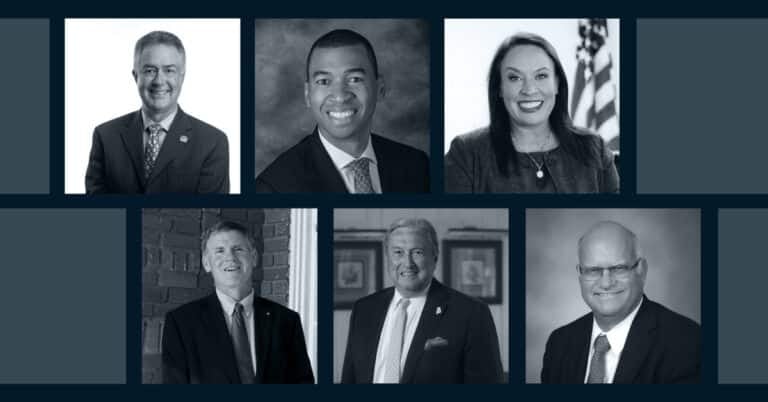Mental health has increasingly become a critical focus in the workplace as employers recognize the importance of fostering healthier environments. Organizations are now more proactive in addressing mental well-being, creating supportive programs and reducing stress aiming to ensure a productive, balanced workforce. Mental health professionals, Laura Strother, Horizon Health Program Director at Crossbridge Behavioral Health, and Donna Leslie, Executive Director of Carastar Health, share their insights on how companies can implement effective strategies to support their employees’ mental well-being.
THE IMPORTANCE OF MENTAL HEALTH EDUCATION AND TRAINING
The most vital element of mental health support in the workplace is education. According to Laura Strother, one of the most effective methods for addressing mental health challenges early is through Mental Health First Aid, an evidence-based course that teaches
participants how to identify and address mental health and substance use challenges. “Mental Health First Aid is designed to create solutions and support for team members dealing with mental health or substance abuse issues,” Strother explains. By providing this type of training, employees and managers alike can recognize signs of distress, approach coworkers with empathy and provide the right kind of support.
Donna Leslie echoes this sentiment, emphasizing the role of education in creating a more empathetic work environment. “When companies invest in mental health education, they build a culture where employees feel valued and understood, reducing the stigma around mental health issues,” she adds.
Pro Tip: The Alabama Department of Mental Health and NAMI Alabama (National Alliance on Mental Illness) offers Mental Health First Aid training on how to identify, understand and respond to signs of crisis.
INTEGRATING MENTAL HEALTH INTO WELLNESS PROGRAMS
Incorporating mental health resources into existing wellness programs is another effective strategy. Leslie highlights the importance of Employee Assistance Programs (EAPs). An EAP is a voluntary, work-based program that offers free and confidential assessments, short-term counseling, referrals and follow-up services to employees who have personal and/or work-related problems.
“EAPs are essential tools for employees who may need immediate access to mental health services, offering everything from counseling to family support,” says Leslie. Making these programs visible and accessible encourages employees to seek help without hesitation.
Strother notes that Crossbridge Behavioral Health offers intensive outpatient services (IOP) that include group-based care and follow-ups. “These services are available across industries, and ensuring that employees know about them can make a world of difference in their mental health journey,” Strother emphasize.
RECOGNIZING MENTAL HEALTH STRUGGLES AND OFFERING SUPPORT
Identifying when an employee is struggling with mental health can be challenging, but early intervention is key. Strother advises paying attention to changes in behavior, such as mood shifts, decreased energy or trouble concentrating. “Compassionate check-ins can open the door to a conversation, allowing employers to offer support before issues escalate,” she explains. Both Leslie and Strother encourage managers to create open lines of communication and ensure that employees feel safe reaching out for help.
Pro Tip: If you recognized that tasks are getting dropped, work isn’t as high quality or on time as it used to be, one of your employees may be struggling. If someone used to always get reports done on time and suddenly this changes, a supervisor or human resources should not hesitate to check in.
When approaching this topic with employees, Leslie warned, “We have to be careful with boundaries. Especially working in mental health, as a therapist myself, I have to watch that I don’t try to become the therapist for my staff. We slip into that role so naturally sometimes. Have places that human resources can refer someone to for help, if it’s needed.”
REDUCING BURNOUT AND PROMOTING WORK-LIFE BALANCE
Burnout is a common issue in many industries, particularly in healthcare, where the emotional toll can be overwhelming. Leslie highlights the importance of self-care for healthcare workers, noting that “taking care of themselves is just as important as caring for patients.” She encourages healthcare professionals to follow the same advice they give their patients—regular breaks, sufficient rest and proper nutrition—to maintain their own mental health and overall well-being.
“It’s all about balance. Your job is important, but it shouldn’t be your life’s number one priority. If all you do is work, you will burn out and eventually not be able to work,” says Leslie.
ADVICE FOR EMPLOYEES:
- Take leave and short breaks when you can.
- Take that lunch hour, if you have it.
- Take five minutes to step outside just to get some Vitamin D.
- Practice meditation and mindfulness.
- Develop a good system for organization—a checklist works wonders and gives you that little dopamine boost as you mark things off.
- Consult, seek supervision and seek support.
- If you’re having difficulty in your job, talk to your supervisor or human resources.
ADVICE FOR EMPLOYERS:
- Find the time for company outings, moments to celebrate and have fun.
- Catch your staff doing right instead of wrong, and praise them for it.
- Make sure you have a plan for where to refer employees if they need counseling.
- Consider a specific employee assistance plan (EAP).
- Make sure the tasks you assign are reasonable and achievable.
- Make sure they have the necessary training and the resources to complete their tasks.
- Remember the golden rule: Don’t ever ask your staff to do something that you yourself are not willing to do.
Strother suggests that companies in all sectors can play an active role in reducing burnout by encouraging regular breaks, time off and a healthy balance between personal and professional life.
TAKING THE FIRST STEP TOWARD MENTAL HEALTH SUPPORT
Leslie stresses the importance of recognizing when stress is becoming overwhelming. “For many, day-to-day pressures can gradually build until they impact relationships, work and overall well-being,” she says. Taking the first step toward getting help can be daunting, but Leslie and Strother both advocate for reaching out to counselors or professionals early on. Having a proactive crisis plan in place, including recognizing triggers and identifying warning signs, can be crucial in managing mental health effectively.
“Taking the first step towards improving mental health can be hard. When you aren’t feeling good, one of the last things you want to do is get the energy to go talk to someone you don’t know, so what we see is the person tries to manage stress day to day, and before they know it, things have gotten away from them—relationships, work, physical well-being, all the important things. You feel overwhelmed, like everything is out of whack. Reaching out to a counselor or someone trained to help you sort through it all can be very helpful. Over time, black clouds become grey, then white again and days can be brighter and clearer for you,” shared Strother.
Mental health is an integral part of overall employee well-being, and it is the responsibility of companies to ensure that employees have the tools and support they need to thrive. Organizations can create a healthier work environment through education, open communication and accessible resources. By prioritizing mental health, companies can shape a more productive, empathetic and resilient workforce.
Pro Tip: Recognizing employees’ contributions when they return from time off reinforces the idea that mental health and personal well-being are valued.
UNIQUE CHALLENGES FOR REMOTE AND HYBRID WORKERS
With the rise of remote and hybrid work, companies face new challenges in supporting employee mental health. Remote workers, in particular, may experience feelings of isolation, and the blurred lines between work and personal life can lead to stress. “It’s essential to help remote workers establish boundaries, such as creating a routine that includes ‘clocking out’ and engaging in healthy after-work activities,” advises Strother. Employers can also provide resources for remote employees, helping them develop habits that promote mental health.
Leslie also emphasizes the need for managers to stay connected with remote staff, creating opportunities for regular check-ins and encouraging employees to discuss any challenges they may face in maintaining work-life balance.
YOU ARE NOT ALONE
Millions of people are affected by mental illness each year. One of those people could be yourself, a friend, neighbor, family member or co-worker.
- 1 in 5 adults in the U.S. experience mental illness
- 1 in 20 adults in the U.S. experience serious mental illness
- 17% of youth (6-17 years) experience a mental health disorder
- 19% of adults in the U.S. adults suffer from anxiety disorders
Source: www.NAMI.org
If you or someone you love is struggling with mental health issues or in crisis, call or text 988—the suicide and crisis lifeline. Crisis counselors are available 24/7 to help.
THE EXPERTS
Donna Leslie, Executive Director for Carastar Health
Donna Leslie is the Executive Director of Carastar Health, the 310 Board Community Mental Health Center serving Montgomery, Elmore, Lowndes and Autauga Counties. She is a Supervising Licensed Professional Counselor and worked with seriously mentally ill individuals in the private sector for 10 years. With almost 25 years of experience in the field, including over a decade with Carastar Health, Leslie enjoys working with community partners and organizations to help coordinate, improve and educate on behavioral health care in the River Region.
Laura Strother, Program Director of Crossbridge Behavioral Health
Laura Strother is a Licensed Clinical Social Worker in Alabama. After graduating with a Master’s in Social Work, she began working alongside others dedicated to the safety and well-being of children and families. In 2015, she began working with individuals and families affected by mental illness. She is now the Horizon Health Program Director at Crossbridge Behavioral Health located at Baptist Medical Center South. Crossbridge Behavioral Health provides inpatient and outpatient behavioral health services to people in the River Region and throughout the State of Alabama.






